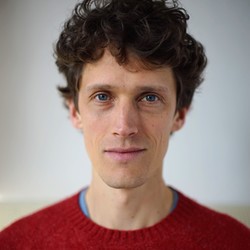Now that the Walsh group has a critical mass at Imperial College London, I am planning to restart the Bookclub.
Keith Butler kicked these off in Bath with the guiding words of everyone’s favourite German pessimist, Arthur Schopenhauer:
“Buying books would be a good thing if one could also buy the time to read them in: but as a rule the purchase of books is mistaken for the appropriation of their contents.”
The plan is to do some reading & self-directed study of a relevant book, and then get together at 5PM on Thursdays (in weeks when there is not an interesting TYC seminar) to discuss and explain things to each other.
We’re going to start with the first one and a half chapters of Ziman’s solid-state book “Principles of the theory of solids”, ideally the second edition (1971). ( There is currently 1 copy of the 2nd edition, and 3 copies of the 1st edition, available for loan at the Central Library, Level 4 (530.41 ZIM).)
That’s Chapter 1: Periodic structures, reciprocal lattice, Bloch’s theorem, Brillouin zone; and Chapter 2: Lattice Waves: Lattice dynamics, lattice sums (Ewald), lattice specific heat and lattice spectrum (DoS). So stopping before the diffraction + Debye waller + phonon scattering, in the second half of the second chapter.
We’ll get together to discuss this at 5PM on Thursday 12th January, floor two of the RSM (Dept Materials), Imperial College London.
Other books which we are planning to visit in the near future are:
- Martin’s DFT book
- Krauth’s Stat. Mech. - Algo and Computation
- Tinkham’s Group Theory and Quantum Mechanics
- Feynman’s Statistical Mechanics
- Nye’s Physical Properties of Materials by Tensors
Everybody welcome! You certainly don’t need to do DFT to be able to, or to benefit from, knowing the theory. (Arguably doing calculations actually gets in the way…)
We have a discussion channel on our “Materials Discovery Network” Slack group. https://mdn-uk.slack.com/messages/icl-bookclub/ It’s on the ‘free’ plan, so messages are ephemeral, but all friendly electronic structure people very welcome!
